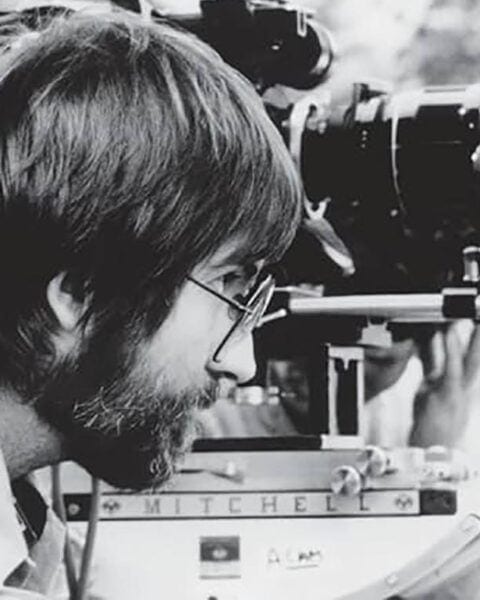Dibbern and Larson discuss how writing about film led them back to writing about themselves.
The biggest surprises in the book come in the Metropolitan dossier.
Betancourt explores the development of his queer male gaze through candid reflections on the pop-cultural influences that formed his early education in how to want and how to be.
Throughout, the dramatic revelations never eclipse the grace of the story’s emotional core.
Cinema Speculation Review: Quentin Tarantino’s Wrenching Blend of Criticism and Memoir
The fan-boyishness that can get away from Tarantino in his writings for the New Beverly Cinema is wielded like a scalpel in Cinema Speculation.
The novel reads as a final, all-encompassing summary of Irving’s concerns and obsessions.
Gods of Want resists words like “magical” and “mythical” and “dreamlike” because it takes magic, myth, and dreams so seriously.
Jon Lewis is a talented chronicler of the clash between artistic impulse and commercial imperative.
Fred Goodman’s Rock on Film has its selling points, but breadth and depth aren’t among them.
Dennis Lim shares with Hong Sang-soo an exacting imagination that’s both erudite and tactile.
Don Winslow discusses how he’s seeking to establish crime fiction as another grand thread in the canvas of the entire storytelling tradition.
This unconventional biography casts its subject as the protagonist of his time, a mirror for the rapidly changing country in which he lived.
Through his characters, Hervé Le Tellier explores the question of duplication from a personal, social, and philosophical perspective.
More than any writer before him, Adam Nayman cuts to the heart of the moral queasiness that abounds in Fincher’s work.
Late Summer is a quiet novel about loneliness, the universal human desire to be seen and felt, and the slow cost of isolation.
Koresky’s complicated relationship with age and mortality inflects much of Films of Endearment.
The intensity of Subdivision’s narrative purpose stands in marked contrast to Let Me Think.



















